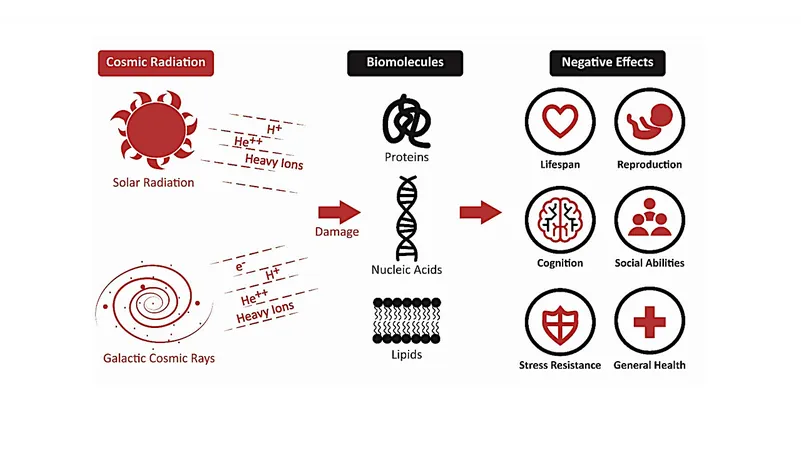
Alarming Surge: Alberta's HIV Rates Soar by 73% in Just One Year!
2024-12-01
Author: William
Alarming Surge in Alberta's HIV Rates
As the world observes World AIDS Day this Sunday, a troubling report reveals that HIV rates in Alberta have reached alarming levels, prompting urgent calls from doctors, researchers, and community advocates for immediate action. The latest annual report from Alberta Health indicates that reported HIV cases have nearly doubled since 2019, with a staggering 73% increase noted from 2022 to 2023.
Concerns from Healthcare Professionals
Dr. Caley Shukalek, a Calgary physician working in HIV clinics and a co-founder of Freddie—an organization dedicated to providing treatment and medications—expressed her concerns: "Our clinics are busting at the seams. We’re doing more work with the same resources. It’s a struggle to get patients seen immediately upon diagnosis due to a lack of experienced healthcare professionals and a shortage of nurses and in-house pharmacists to adequately manage these cases."
Factors Contributing to the Surge
Several factors have contributed to this surge in HIV infections. Experts point to decreased access to testing and treatment during the COVID-19 pandemic, which resulted in underdiagnosed cases and possibly higher transmission rates. Additionally, while the majority of new infections still occur within gay, bisexual, and transgender populations—accounting for 40% of the cases—there has been a notable shift with heterosexual contact now leading as the primary mode of transmission.
Changing Demographics of HIV Transmission
Dr. Shukalek elaborated on the changing demographics: "We’re witnessing an increase in transmissions associated with heterosexual relationships, as well as among individuals who use substances. Alarmingly, many cases are being acquired outside Canada, either through immigration or Canadians contracting HIV while traveling."
Impact of Global Interconnectedness
In a shocking revelation, Alberta Health reports that over half of the new HIV cases in Alberta in 2023 were likely acquired outside the country. Specifically, approximately 55% of cases identified this year were linked to infections contracted abroad, up from 43% the previous year. This data underlines the increasing global interconnectedness and its impact on local health crises.
Future Projections and Urgent Action Required
While the final figures for HIV cases in 2024 have yet to be determined, Alberta's Ministry of Health has indicated that current trends suggest the numbers will remain comparable to those reported in 2023. The urgent question remains: what steps will be taken to address this growing epidemic? It is imperative that both the government and healthcare providers come together to enhance prevention, testing, and treatment efforts to combat this serious public health issue effectively.









 Brasil (PT)
Brasil (PT)
 Canada (EN)
Canada (EN)
 Chile (ES)
Chile (ES)
 España (ES)
España (ES)
 France (FR)
France (FR)
 Hong Kong (EN)
Hong Kong (EN)
 Italia (IT)
Italia (IT)
 日本 (JA)
日本 (JA)
 Magyarország (HU)
Magyarország (HU)
 Norge (NO)
Norge (NO)
 Polska (PL)
Polska (PL)
 Schweiz (DE)
Schweiz (DE)
 Singapore (EN)
Singapore (EN)
 Sverige (SV)
Sverige (SV)
 Suomi (FI)
Suomi (FI)
 Türkiye (TR)
Türkiye (TR)